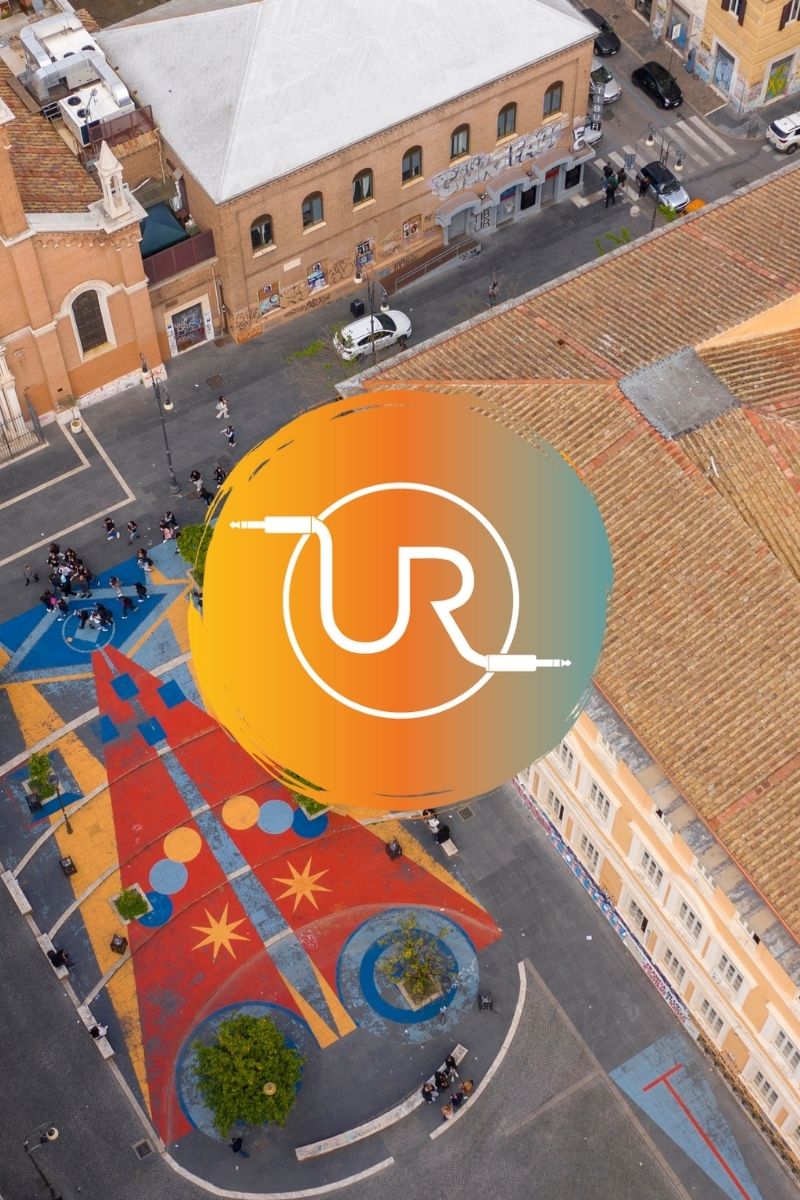
While strolling through the Pigneto district of Rome, you might notice a sign written in German. This sign points to a venue named Sparwasser, located on Via del Pigneto, which was established on November 23, 2015. Sparwasser is an ARCI club, part of the organization founded in Florence in 1957. ARCI, short for Associazione Ricreativa e Culturale Italiana, is one of Italy’s largest cultural and social associations, promoting culture, arts, social solidarity, and civil rights. It aims to address social inequalities, foster solidarity, and encourage community participation. Today, ARCI encompasses a network of more than 4,000 centers and clubs throughout Italy.
Sparwasser, as one of these ARCI clubs, has transformed into a meeting point for different generations in Pigneto, a hub of intellectual activity in the city. The venue hosts cultural, social, and artistic events, including music, art exhibitions, educational programs, and solidarity projects, with an emphasis on engaging the local community. During the pandemic, Sparwasser converted its space into a shelter for the homeless, exemplifying its commitment to social responsibility. But do you know where the name Sparwasser originates?
Jürgen Sparwasser: One Goal, Two Germanys
Jürgen Sparwasser, a former East German footballer, made history with a single goal that not only defined his career but also became a symbol of political significance. Known for his legendary goal against West Germany in the 1974 FIFA World Cup, Sparwasser’s moment of triumph brought the conflicts and divisions between East and West Germany into sharp focus. His story is a powerful testament to the fact that football is more than just a sport—it can reflect major political and social upheavals.
East Germany’s Hope: Sparwasser’s Early Years
Jürgen Sparwasser began his football career in the 1950s, quickly gaining recognition for his technical skills and determination. He played for East Germany’s Magdeburg team at a time when the rivalry between East and West Germany was particularly intense. Athletes were often seen as representatives of their nation’s ideology and strength.
Thanks to his performance with Magdeburg, Sparwasser was selected for the national team and became one of East Germany’s most celebrated athletes. Expectations were high as the team prepared for the 1974 FIFA World Cup, hosted by West Germany. The match between East and West Germany, their first and only encounter, carried immense national pride and political implications.
The 1974 World Cup: A Goal to Remember
On June 20, 1974, in Hamburg, a match that would go down in history took place. This was the first official confrontation between the two Germanys, elevating the game beyond mere sportsmanship. For both countries, the match represented a battle for prestige and ideological dominance. In the 77th minute of the second half, Sparwasser scored a goal that would change his life forever. East Germany’s victory over West Germany in this single match became a symbol of triumph, celebrated across East Germany as evidence of their superiority. While West Germany lost the match, they went on to win the 1974 FIFA World Cup. However, Sparwasser’s goal left a deep impact, perceived by politicians and citizens as a significant political blow.
A Political Symbol: “Hero” or “Traitor”?
Sparwasser’s goal became a tool for propaganda in East Germany’s socialist regime, turning him into a symbol of victory over the West. He was celebrated as a national hero in the East, while being vilified in the West. Over time, being portrayed as the face of the socialist regime became a burden for Sparwasser, one he struggled to carry.
Escape to West Germany
After continuing his professional football career until 1979, Sparwasser obtained a coaching license and became an assistant coach for Magdeburg. By the late 1980s, the political and social climate in East Germany had grown increasingly challenging. On January 10, 1988, following an exhibition match in Saarbrücken, Sparwasser executed a long-planned escape with his family, fleeing to West Germany.
East Germany’s state news agency, Allgemeiner Deutscher Nachrichtendienst (ADN), accused “anti-sport forces” of manipulating Sparwasser, stating, “Sparwasser has betrayed his team.” One Stasi colonel reportedly remarked, “Anyone else but Sparwasser would’ve been understandable…”
This escape was not only a rejection of the East German socialist system but also an attempt to shed the ideological weight he had carried for years. In later interviews, Sparwasser consistently emphasized that his goal in 1974 was purely about football and that he never intended to be part of a political conflict. The jersey he wore during that match, bearing the number 14, was auctioned in 2003 and donated to the Haus der Geschichte museum in Bonn.
Sparwasser’s Legacy
Jürgen Sparwasser is remembered today not only as a footballer but as a man caught in the political turmoil between two nations. His story highlights the profound influence of football on society and the overwhelming pressures of ideological symbolism. In Italy, some have hailed Sparwasser as the “worker’s son who humbled the West,” celebrating him as a hero. His compelling journey reveals how sports can transcend the field, shaping lives and reflecting the complex realities of political struggles.
Unplugged Routes invites you to explore Italy through equally fascinating football stories—discover a journey like no other!







Leave a comment: